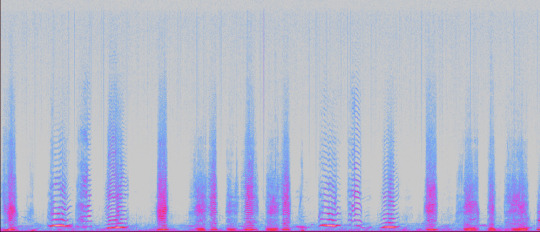Text
Check my newest post on Medium!
https://anthi092.medium.com/why-do-most-new-years-resolutions-fail-e7bd505e762d
2 notes
·
View notes
Text
Embracing Anti-Racist Practices in the Music Perception and Cognition Community?
According to Baker et al. (2020) “The field of music cognition, like academia as a whole, is built upon a history of racist policies that have privileged whiteness” and now may societies such as the Society for Music Perception and Cognition (SMPC) have contemplated on how they have participated in practices that marginalize underrepresented members of their community and affirm their unequivocal support for the Black Lives Matter movement. Furthermore, they suggest how as a community we can advocate for anti-racist practices to make SMPC more inclusive (Baker et al., 2020).
For instance, according to the Society for Music Theory’s Annual report on Membership Demographics for 2018” 84.2% of membership is white, 90.4% of fulltime employees are white, and 93.9% of associate and full professors are white (Ewell, 2020). Philip Ewell (2020) discussed the role of the “white racial frame” in music theory, and its beliefs on “music and music theory such as the music and music theories of white person represent the best framework, the music and music theories of whites from German-speaking lands of the eighteenth, nineteenth, and early-twentieth centuries represent the pinnacle of music-theoretical thought, and the language of “diversity and the actions it effects will rectify racial disparities, and therefore racial injustices, in music theory”.
Jacoby et al. (2020) discussed that most research in psychology and neuroscience has been conducted on participants from “Western, Educated, Industrialized, Rich, and Democratic societies” and agrees that music psychology has the same sampling bias and therefore, two problems arise from this. The understanding of human mechanisms for music perception and production, and the second with regards to the biological and cultural origins of music, and its relation to language and cultural origins of music.
Baker et al., (2020) proposed a list of steps toward anti-racist action that reflect commitment to allocate time and financial resources to address the issues. First, they propose establishing a committee on anti-racism, and creating a position for an Equity Officer on the Board chairing the committee. Furthermore, they propose to allocate funding for grants to lessen the financial barrier so that underrepresented groups can participate.
References
Baker, D. J., Belfi, A., Creel, S., Grahn, J., Hannon, E., Loui, P., Margulis, E. H., Schachner, A., Schutz, M., Shanahan, D., & Vuvan, D. T. (2020). Embracing Anti-Racist Practices in the Music Perception and Cognition Community. Music Perception, 38(2), 103–105. https://doi.org/10/gh7r22
Ewell, P. A. (2020). Music Theory and the White Racial Frame. Music Theory Online, 26(2). https://doi.org/10/gh7r23
Jacoby, N., Margulis, E. H., Clayton, M., Hannon, E., Honing, H., Iversen, J., Klein, T. R., Mehr, S. A., Pearson, L., Peretz, I., Perlman, M., Polak, R., Ravignani, A., Savage, P. E., Steingo, G., Stevens, C. J., Trainor, L., Trehub, S., Veal, M., & Wald-Fuhrmann, M. (2020). Cross-Cultural Work in Music Cognition. Music Perception, 37(3), 185–195. https://doi.org/10/ggmn8v
0 notes
Text
10 beginner-friendly books for music psychology enthusiasts
1. Musicophilia: Tales of Music and the brain
In this book, Oliver Sacks describes a wide range of what he calls “musical misalignments” to explore how the brain processes music.
Available at: https://www.oliversacks.com/books-by-oliver-sacks/musicophilia/
2. This is Your Brain on Music: The Science of a Human Obsession
In this interdisciplinary book, Daniel Levitin investigates how music and more specifically music performance, composition, listening, and enjoyment are connected with the human brain.
https://www.goodreads.com/book/show/141565.This_Is_Your_Brain_on_Music
3. Music, The Brain, and Ecstasy: How Music Captures Our Imagination
This is the perfect book for someone just starting out in the science of music.
https://www.goodreads.com/book/show/141566.Music_the_Brain_and_Ecstasy
4. Music, Math and Mind: The Physics and Neuroscience of Music
This book explores the mathematics, physics, and neuroscience for people with any level of science and math proficiency, including none making it the perfect book for musicians and music lovers.
https://www.goodreads.com/book/show/53397683-music-math-and-mind
5. Sweet Anticipation: Music and the Psychology of Expectation
An amazing book about music expectations, how they are formed and how they evoke emotions.
https://www.amazon.com/Sweet-Anticipation-Psychology-Expectation-Bradford/dp/0262582783
6. Psychology of Music: From Sound to Significance
This book discusses among others the acoustics of music, auditory perception and neurophysiology of hearing, the perception and cognition of music, the meaning and significance of music, the social and cultural aspects of music, and the emotional power of music
https://www.routledge.com/Psychology-of-Music-From-Sound-to-Significance/Tan-Pfordresher-Harre/p/book/9781138124684
7. Psychology for Musicians: Understanding and Acquiring the Skills
This books is an excellent introduction to psychlogical research for musicians, performers, music educators, and studio teachers.
https://oxford.universitypressscholarship.com/view/10.1093/acprof:oso/9780195146103.001.0001/acprof-9780195146103
8. An Introduction to the Psychology of Hearing
This book is the leading textbook in the field of auditory perception. It not only describes research results but interprets them and evaluates them as well. It covers a variety of topics including the physics of sound, the physiology of the auditory system, frequency selectivity and masking, and loudness perception.
https://brill.com/view/title/24210
9. The Oxford Handbook of Music Psychology
This book provides a comprehensive overview of the latest research in music psychology such as the origins and functions of music, music perception, responses to music, music and the brain, musical development, learning musical skills, musical performance, and music therapy.
https://www.oxfordhandbooks.com/view/10.1093/oxfordhb/9780199298457.001.0001/oxfordhb-9780199298457
10. Music as Biology: The Tones We Like and Why (Dale Purves)
In this book, the author answers questions that have fascinated philosophers, scientists, musicians, and ordinary music listeners such as what makes some sounds consonant and others dissonant, why different scales evoke different emotions and tries to answer them in terms of biology.
Available at: https://www.hup.harvard.edu/catalog.php?isbn=9780674545151
What’s your favourite beginner-friendly music psychology book?
0 notes
Text
SanctSound: Listening to the (Not So) Silent World
Scientific voyages into the world of sound in the National Marine Sanctuary System

Read the full story at https://sanctuaries.noaa.gov/news/feb21/sanctsound-overview.html
Ever traveled to a new city and noticed how different it sounded from your hometown? Sound is one of many ways that marine animals experience their environments, and one of many ways that we can study the underwater world.

SanctSound is a four-year project, managed by NOAA and the U.S. Navy, to better understand underwater sound within national marine sanctuaries. Since the fall of 2018, and through the spring of 2022, the agencies are working with numerous scientific partners to study sound within seven national marine sanctuaries and one marine national monument, in waters off Hawaii and the East and West coasts.

Read the full story at https://sanctuaries.noaa.gov/news/feb21/sanctsound-overview.html
67 notes
·
View notes